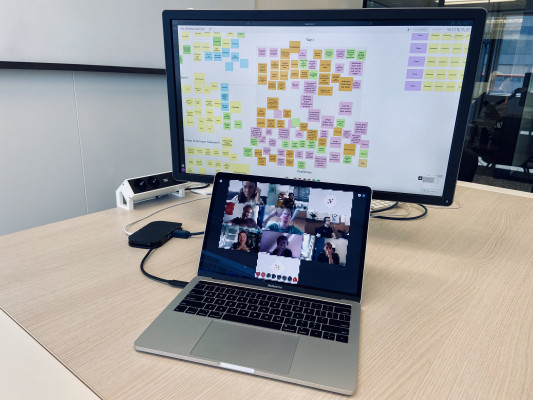
What is currently happening in online education?
In our previous blog, we summarised the experiences of teachers worldwide in promptly navigating the digital after the outbreak of COVID-19. Concentration issues for students and the limited ability for teachers to respond proactively seem to be the two biggest challenges. We explained how only some of the challenges of online learning can be battled with software and features currently available (and often not specifically designed for learning) and stated that we should work towards a digital environment that is shaped specifically for the learning flow of a student.
What activities are taking place in online education?
Besides the continuation of elements that are also present in a physical classroom, teachers are exploring additional activities like quizzes, huddles, and video assignments, to keep stimulating interactive learning.
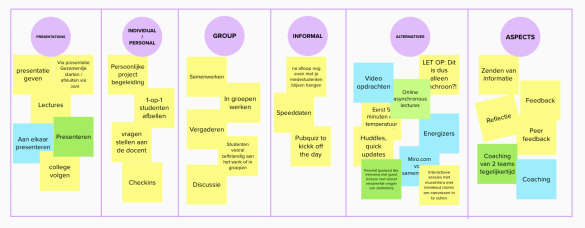
Which tools are used to facilitate online education?
Many use similar and well-known tools for their communication and organisation, like Zoom, Notion, MS Teams and OneNote. However, we've noticed that already a lot of alternatives and options exist for online brainstorming and presentations. Besides popular software like Miro, Mural, Canvas, Google Slides and PowerPoint, alternatives got shared that proved to be an inspiration to teachers who didn't know these yet.
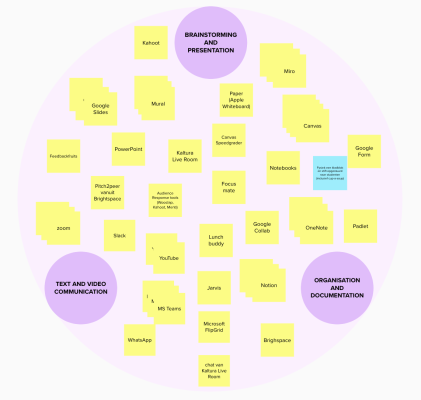
Which resources and methodologies inspire online education?
Then, we asked all participants to share their inspirations, resources and methodologies for online teaching. Here as well, the exchange of knowledge proved to be fruitful for the participants involved and activated an interesting discussion.
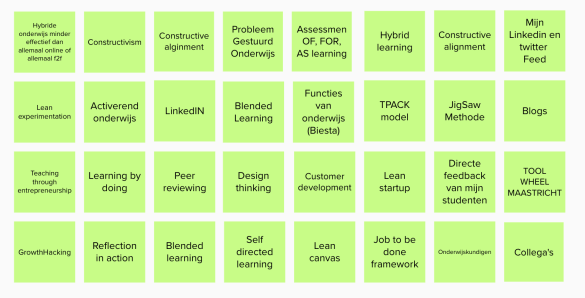
What are current experiences of online education?
We kicked off the brainstorm session by discussing both positive and negative experiences of online teaching. We noticed the same characteristics of online teaching offer both opportunities and challenges, much like a double-sided sword.
Afterwards, we could categorise these experiences into six themes: social, focus and energy, evaluation, presence of teachers, digital transition and accountability and feedback. Interestingly, most challenges were not linked to the transformation of teaching material per se, but more so to the social and soft skills of teaching and how online teaching makes this challenging.
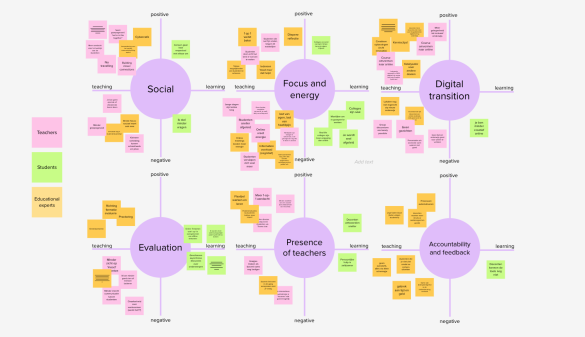
What are the most pressing challenges in online education?
To wrap up the session we asked participants to vote on 2 out of the 6 themes we identified to prioritise which are most important, urgent, and challenging to them. The verdict was clear.
With double the votes of any of the other themes, challenges around managing energy, focus, and attention were deemed most pressing on both students' and teachers' end. Runner-ups were the social aspects and group dynamics, which are more inclusive, but less personal. Finally, we saw a shifting role of students being more self-guiding in their learning journey and taking accountability for it, while teachers are figuring out how to best support them in that - becoming coaches of growth, rather than sources of knowledge.
What's next?
During this one-hour session, we aimed to map the current challenges and resources present in online teaching, and identify core focuses for improvement. We concluded that the areas of 'focus and energy', 'social and togetherness' and 'accountability and feedback' will be central in the continuation of the project.
This brainstorm was the first step of the research project, a collaboration between SURF and Bit, to find out how to better support virtual and hybrid teaching. We're looking to co-create solutions together with teachers, students, and industry professionals.
Would you like to stay up-to-date with the results of our research? And potentially join one of our future sessions? Let us know by emailing virtual-classroom@surf.nl!
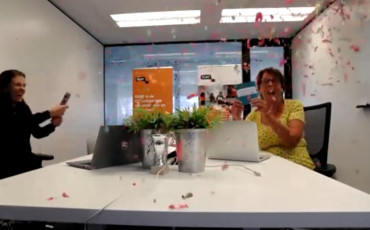
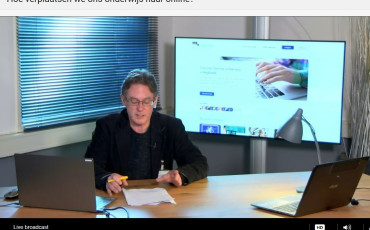
0 Praat mee